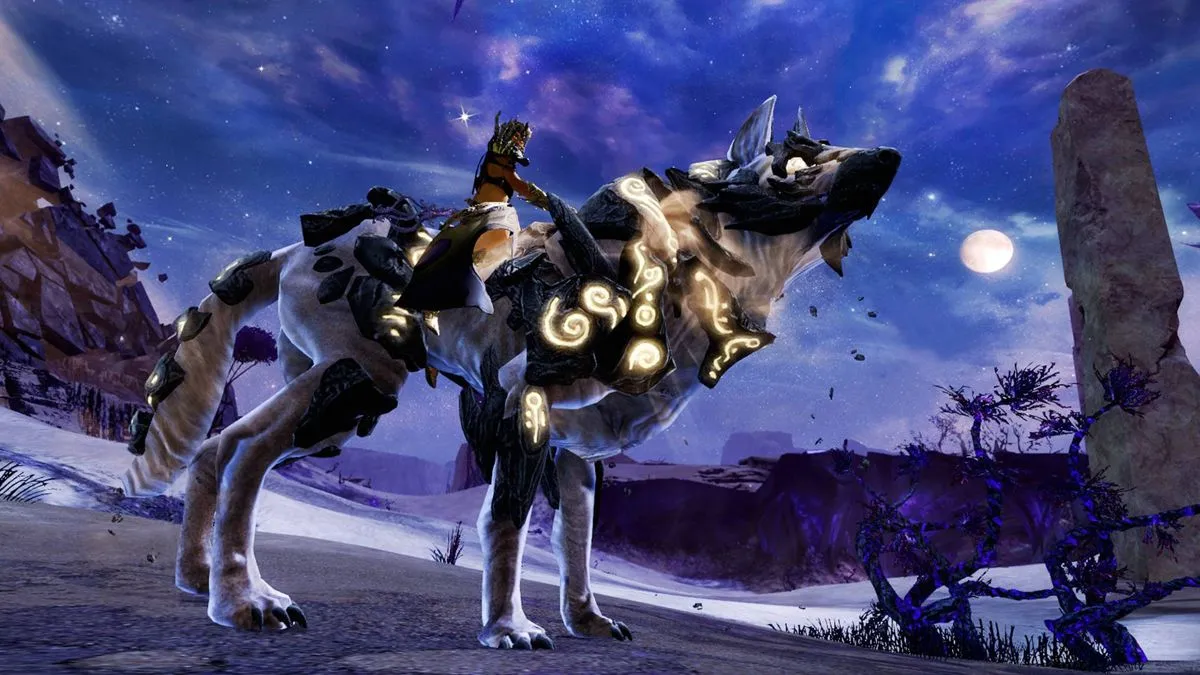Guild Wars 1, despite its age, boasts a lively and detailed economy that continues to bewitch both veteran and neophyte players. The digital realm it offers is not just a battleground for epic narratives and collaborative quests but also a marketplace where fortunes can be made and lost. For many, mastering the art of trade within this virtual economy is as rewarding as the gameplay itself. We’re going to look at the multifaceted world of Guild Wars’ market, providing insights on trade basics, identifying high-value items, optimizing the Trading Post, effective farming strategies for profit, and wealth management tips. This guide is your compass to maneuvering the economic landscape of Guild Wars, ensuring your endeavours are as profitable as they are adventurous.
Trade Basics
Trading in Guild Wars 1 can seem disheartening at first but grasping the fundamental concepts is key to unlocking significant in-game wealth. The economy operates on a supply-and-demand basis, heavily influenced by player activity and game updates. The primary currency is gold, but due to its cap at 100,000 in a player’s inventory and the storage account, other currencies like Globs of Ectoplasm (Ectos) and Zaishen Keys have become de facto standards for high-value transactions.
Understanding Currency
- Gold: The basic currency. Used for most NPC transactions and some player-to-player trades.
- Globs of Ectoplasm: Often termed ‘Ectos’, these are rare crafting materials used as a currency for high-end trades.
- Zaishen Keys: Primarily earned through PvP activities, they hold considerable value in the economy and are used in high-stake transactions.
Trade Channels
- In-game Trading: Direct trades between players. Always ensure the items and the agreed-upon currency are correct.
- Kamadan, Jewel of Istan: The unofficial trading hub. Players announce their wares in the local chat, akin to a bustling digital bazaar.
- Guild Wars Legacy and Other Online Forums: External platforms where players can post and respond to trade offers.
Golden Rules of Trading
- Knowledge is Power: Familiarize yourself with market values to avoid being undersold or overpaying.
- Patience Pays Off: Wait for the right buyer or seller to come along. Rushing tends to result in losses.
- Security First: Beware of scams. Use trusted trading platforms and double-check items and quantities before confirming trades.
High Value Items
Identifying items that carry significant market value is crucial for any trader. Here are some of Guild Wars’ most sought-after treasures:
- Weapons with Perfect Stats: Especially those with unique skins or tied to popular builds.
- Rare Miniatures: Limited-edition minis from special events or early game editions command top dollar.
- Consumables for Speed Clears: Items like Essence of Celerity and Grail of Might are essential for groups aiming to complete dungeons or missions quickly.
- Elite Tomes: Necessary for players looking to unlock elite skills without hunting the skill’s boss.
- Crafting Materials: Certain materials required for prestigious crafting recipes, such as Obsidian Shards or Ectos, are consistently in demand.
Trading Post Tips
To maximize your profits at the Trading Post, consider the following strategies:
Timing Is Everything
Prices can fluctuate based on updates, events, or even the time of day. For instance, weekends and holidays often see an uptick in player activity, potentially affecting market dynamics.
Know Your Market
Stay abreast of current popular builds as they dictate the demand for specific weapons and consumables. Forums and community sites are invaluable resources for this.
Bulk Deals
Selling items in bulk can attract buyers looking to save time, even if the per-item price is slightly lower. This is especially true for crafting materials and consumables.
Farming for Profit
Farming lucrative zones or events is a tried and true method to amass wealth. Here are some proven farming spots and tactics:
Solo Farms
Certain professions excel at solo farming, with areas like Underworld and Fissure of Woe offering high-value drops. Understanding the mechanics and having the right build is key.
Speed Clears
Participating in or organizing speed clears of dungeons or elite areas can yield high-value items and currencies. These activities often require specific team compositions and builds.
Event Farming
Special events often introduce unique drops that can be sold at a premium. Staying informed about upcoming events can position you to capitalize on these temporary opportunities.
Managing Your Wealth
Effective wealth management ensures not only a stable income but also that your fortune grows. Diversification is as wise in Guild Wars as in real finance:
- Invest in Materials: Holding onto certain materials can pay off when their prices peak due to new content or increased demand.
- Crafting and Selling: Crafting sought-after items or consumables can be more profitable than selling the raw materials.
- Storage Management: Efficiently organizing your bank and inventory can prevent overselling or underselling items due to a lack of awareness of your stock.
Conclusion
Mastering the economy of Guild Wars requires a mix of knowledge, method, and vigilance. By understanding the basics of trade, keeping an eye on high-value items, optimizing your Trading Post transactions, efficiently farming, and managing your accumulating wealth, you’ll be well on your way to not just surviving but thriving in the marketplace of this enduring online world. Remember, the path to riches in Guild Wars is not just about making the right trades but making smart decisions. Stay informed, stay patient, and your virtual fortune will grow.

